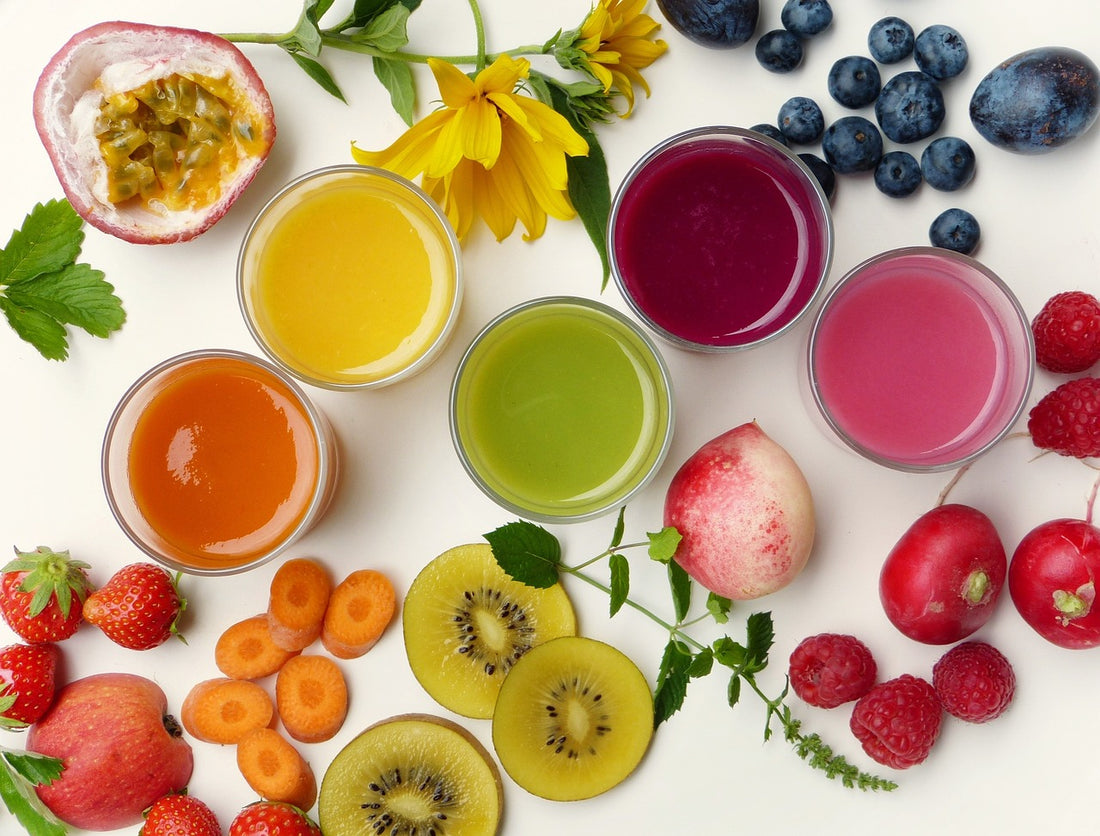Food is primarily a source of energy, but did you know that certain foods also have the potential to boost our immune system, too?
To support your overall health and ensure that your immune system is functioning at its best, it’s essential to include a variety of nutrient-dense foods in your day-to-day diet. To further strengthen your immune system, it's also recommended to take anti-inflammatory supplements such as our algae-based Omega 3.
Take a read below to find out which five fantastic plant-based foods you should add to your diet to help bolster your immunity, and the science behind our immune system.
Kiwi Fruit
Kiwis are not only delicious, but they are also incredibly high in Vitamin C, also known as ascorbic acid.
This is one of the best-known vitamins for your immune system, mainly because it helps your body produce collagen which is vital for strong, healthy skin and the internal linings of our body such as the gut wall. Our skin and the gut wall are both part of our immune system as they’re our first line of defence against germs getting in.
Vitamin C can also help to keep our immune cells active and boost the production of antibodies and other immune chemicals.
Foods high in Vitamin C also include cantaloupe, citrus fruits and juices such as orange, grapefruit, mango, papaya, strawberries, raspberries, blueberries, and cranberries.
Pumpkin Seeds
Pumpkin seeds are beneficial for our immune system due to their zinc content. You can snack on them freely, add them to salads, or sprinkle them over soup - either way, they taste good and do good!
Zinc is an immune mineral which supports in the healing and fighting of infection. It is not only involved in producing the antibodies which help us to fight infection, but it also plays a role in T-cells, natural killer cells and lymphocyte activity, which are all essential components of a well-functioning immune system.
Research has evidenced that having sufficient levels of zinc in our body can help reduce how long an infection lasts for as well as reduce the severity of the symptoms.

Kombucha
Come and get your kombucha! This fermented drink made from tea, sugar and bacterial culture has recently exploded in popularity within the wellness community, and for good reasons too.
You can easily make Kombucha at home, but since it’s become more mainstream, you’ll now be able to find it in most supermarkets.
So, why is Kombucha great for our immune system? Our gut contains trillions of bacteria, many of which are known as the ‘friendly’ types. As well as helping to digest our food, they can produce antimicrobial substances against ‘bad’ bacteria and other pathogens.
They may also interact directly with the part of the immune system found in and around the gut, helping to “teach” it what to react to. So, a lack of the right gut bacteria (which can happen due to poor diet, stress, antibiotic medication and many other reasons) can impact our immunity.
This is why incorporating probiotic-containing foods such as Kombucha into our diet can be really helpful. Other probiotic foods to try include are kefir, live yoghurts, sauerkraut, tempeh and miso.
Garlic
A potent antibacterial and antiviral food, garlic has been used for many centuries to fight off infections.
The protective powers of garlic are due to one compound known as allicin, which is able to boost the disease-fighting response of some types of white blood cells in the body when they encounter viruses.
Studies have shown that garlic can also reduce the risk of becoming ill in the first place, as well as reduce how long you stay ill and the severity of your symptoms.
To maximise the health benefits of garlic, crush or slice it before you eat it as this increases the allicin content. Next, leave your garlic to stand for 10 minutes before you cook it, and make sure to use lots of it – more than one per meal if you can.
Spinach
Spinach has made our top 5 plant-based immunity boosting foods not just because of its high Vitamin C content, but also because it’s packed full of other nutrients and antioxidants which can help increase the infection-fighting ability of our immune system.
This leafy green vegetable contains the compounds beta carotene, lutein and zeaxanthin, which all help to strengthen our immunity and protect against heart problems and macular degeneration.
To get the best from spinach, try to cook as little of it as possible. This will ensure that the nutrient content isn’t lost during the cooking process.
Another great way to eat spinach is to toss it into salads or add it to a smoothie. Simply blend the spinach with some coconut or nut-based milk, and add some extra nuts and seeds for a double dose of immunity protection.

What Is The Immune System?
The immune system is a huge network of cells, organs, tissues and chemicals whose main job is protecting us against pathogens such as bacteria, viruses and other harmful microbes.
The cells inside our immune system come in many different types - some directly attack and “eat” germs and toxins, while some produce chemicals that kill pathogens, make antibodies or help coordinate the actions of other immune cells.
The organs and tissues involved in our immunity include our lymph glands, spleen, thymus and bone marrow. A lot of our immune tissue is found in the gut, too, because this is the main way that germs from the outside world can enter the body. Luckily, our gut helps to trap them before they can get through!
There are two main divisions of our immune system, although they’re closely linked.
The innate immune system is what we’re born with - this includes our physical barriers such as our skin and the gut wall that stops germs from getting in. Our immune system also includes cells that can recognise pathogens such as bacteria and trigger a general immune response.
The adaptive immune system is the second part of our immune system that develops from our birth onwards. Here’s how it works: cells of the adaptive immune system learn and remember specific viruses, bacteria and other pathogens they’re exposed to. This way, they’re able to mount a faster response next time and stop us from getting ill with the same infection again.
For example, it’s why having chicken pox or measles as a child means you’re unlikely to get them again as an adult, and it’s how vaccinations work, too.
Another important job of a healthy immune system is to not respond to things that are safe. This includes our body’s own cells, the friendly bacteria that are in our gut, and the safe substances in the foods that we eat and absorb.

